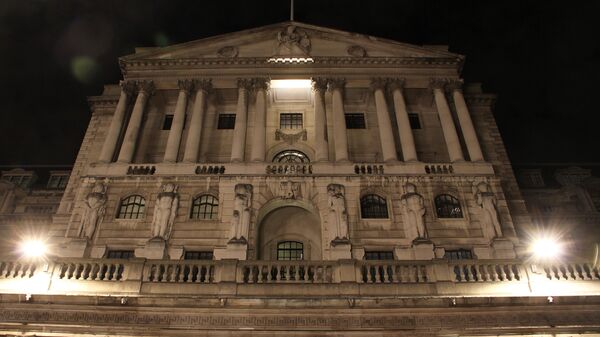Kristian Rouz – The Bank of England (BOE) has left base borrowing costs unchanged at record lows of 0.25pc on Thursday, even though the recent acceleration in domestic inflation supports a monetary tightening agenda.
The BOE’s benchmark borrowing costs had been steady at 0.5 pc between March 2009 and August 2016, when, in the aftermath of the Brexit vote, the regulator provided greater accommodation to the economy hit by the emerging risks of disrupted trade ties and financial market volatility.
However, with growth having picked up in 3Q16, and inflation gaining momentum – to 1.2 pc in November from 0.9 pc the previous month, market participants will be anticipating clues from the Monetary Policy Committee’s (MPC) hawks early next year. The regulator might start raising rates should inflation reach the targeted 2pc.
“Monetary policy could respond, in either direction, to changes to the economic outlook as they unfolded to ensure a sustainable return of inflation to the 2% target,” the MPC said in a statement.
Should the UK’s economy continue its robust expansion, outperforming the current expectations for the next year, with inflation surpassing the 2pc threshold, the MPC will respond with a rate hike. An inflationary slowdown in the broader economy will likely trigger no reaction from the regulator, and only a significant economic downturn could entail further easing in monetary policies.
“Growth is expected to slow and the MPC’s base case remains that higher inflation will not become embedded into wages and inflation expectations — some measures of which have risen, they noted — so the Bank can continue to look through the inflation spike. We think Bank Rate will be on hold throughout 2017,” Ian Shepherdson of the consultancy Pantheon Macroeconomics said.
Given that consumer demand drives some 79pc of the UK’s economy, this is good news for a base forecast into the early 2017. Higher consumer demand, despite (and coupled with) the pound’s plunge, also supports the view the UK inflation is gaining further momentum.
“Earlier in the year, the Committee noted that the path of monetary policy following the referendum on EU membership would depend on the evolution of the prospects for demand, supply, the exchange rate, and therefore inflation. This remains the case,” the MPC said.
The BOE’s decision to leave rates unchanged followed the US Federal Reserve’s decision to raise borrowing costs by 0.25, to 0.5-0.75pc, on Wednesday, pushing the dollar to its fresh 13-year highest. The sterling thus finds itself under a greater FX rate pressure, and the three projected US Fed hikes next year will strengthen the case for the BOE’s hikes as well.
“Since November, long-term interest rates have risen internationally, including in the United Kingdom. In part, this reflects expectations of looser fiscal policy in the United States which, if it materialises, will help to underpin the slightly greater momentum in the global economy evident in a range of data since the summer,” the BOE policy minutes read.
That said, the fiscal stimulus plan, announced by the Chancellor of the Exchequer Philp Hammond in November, whilst contributing to the UK’s economic growth and inflation, will also provide support for a certain degree of tightening in monetary policies.
However, with the great deal of uncertainty in the UK’s economy, only extremely cautious planning into the next year is deemed feasible. All the outlined base scenarios might easily be reworked depending on how the economy performs in the outgoing quarter and in 1Q17.




